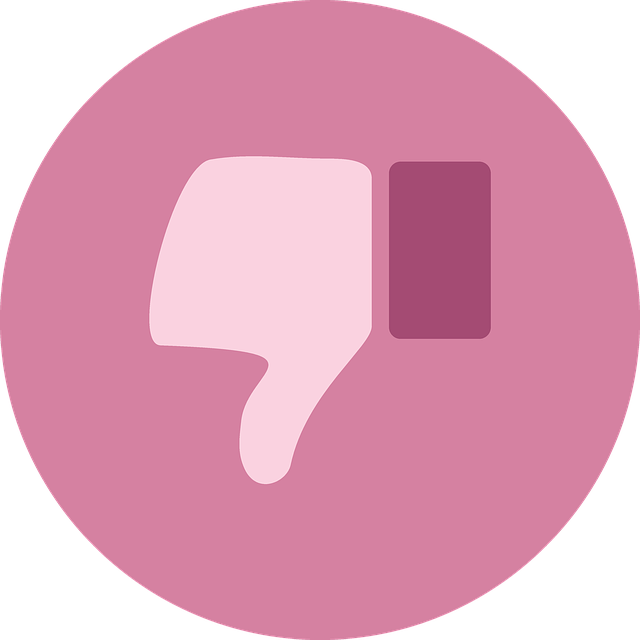
What’s a good TOEFL score for MIT? Is there a TOEFL MIT minimum you must meet in order to qualify for admission as an undergraduate or graduate student? Who has to take the TOEFL?
In this guide, we go over the MIT TOEFL requirement for each major department and look at how this minimum score varies depending on the program you’re applying to. We then give you expert tips on what to do if you’re struggling to meet the MIT TOEFL score threshold.
Who Needs to Take the TOEFL for MIT?
First off, which applicants actually need to take the TOEFL? The general rule is that if your native language is English, you do not have to take the TOEFL.
At MIT, whether you must take the TOEFL depends on two main factors:
- Your country of citizenship
- Your class level (undergraduate or graduate student)
If you’re a US citizen or permanent resident, you will not need to take the TOEFL. If you’re an international applicant from a major English-speaking country such as Canada, the UK, Australia, or New Zealand, you also shouldn’t need to take the TOEFL.
However, if you’re an international applicant from a non-English-speaking country, you may need to take the TOEFL. I say “may” because not all programs at MIT require applicants to submit TOEFL test scores (undergraduate applicants, for example, may submit SAT/ACT scores in place of TOEFL scores).
So how does the MIT TOEFL requirement differ for undergraduate and graduate applicants? Here is a brief rundown of the differences, which we’ll explain more in the next two sections:
By the way: we have built the world's best online TOEFL course. Get online practice (TPO-sytle!) and individual grading and feedback on Speaking and Writing.
To be fair, it's possible to get a good TOEFL score studying alone. But PrepScholar is the world's most effective TOEFL course if you are worried about the TOEFL and are struggling to improve your score.
Learn how you can improve your TOEFL score by 15 points today.
- If you are applying to be an undergraduate and are from a non-English-speaking country, you do not have to (but may) take the TOEFL.
- If you are applying to be a graduate student and are from a non-English-speaking country, you will most likely need to take the TOEFL. (However, there are normally exceptions for those who have received a bachelor’s degree from an English-speaking institution.) You may also need to meet a certain score threshold in order to qualify for admission.
Now, let’s take a closer look at the MIT TOEFL score requirements for undergraduate and graduate applicants.
MIT TOEFL Requirement for Undergraduate Applicants
International undergraduate applicants to MIT have two options for proving their English proficiency:
- Take the TOEFL (and two SAT subject tests), or
- Take the SAT or ACT (and two SAT subject tests)
In other words, you get to choose one test to take (TOEFL, SAT, or ACT). No matter which test you choose, you have to submit SAT subject test scores from two tests as well. One of these subject tests must be a math test, and the other must be a biology, chemistry, or physics test.
If you decide to take the TOEFL, here is the minimum score you must get to qualify for admission to MIT:
- 90 iBT / 577 PBT
Although you do not need to score more than this minimum to get accepted, MIT advises applicants to score higher for a better chance of admission. Here is the recommended MIT TOEFL score:
- 100 iBT / 600 PBT
No matter which score you aim for, you only need to make sure you’re reaching the total score (90 or 100), which you can get with many combinations of section scores. For example, if you’re aiming for 100, you could try to get 25 on each section or something like 28, 23, 27, and 22.
If you decide to take the SAT or ACT instead of the TOEFL, make sure you get a score high enough for MIT. To learn more about what SAT/ACT score you’ll need for admission to MIT, go to MIT’s Admission Requirements page.

MIT TOEFL Requirement for Graduate Applicants
Most of MIT’s graduate programs require international applicants from non-English-speaking countries to submit TOEFL or IELTS scores with their applications.
Graduate TOEFL requirements can vary depending on the school/department and program. At MIT, most graduate programs require a TOEFL score of at least 90 iBT (577 PBT). Some programs, however, may require TOEFL scores that are slightly higher than this minimum.
In addition, many MIT graduate programs prefer IELTS scores over TOEFL scores. While some programs accept scores from either test, others only accept IELTS scores. Therefore, always check directly with your program to learn what its English-proficiency requirements are.
The following chart summarizes the minimum TOEFL requirements for some of the major schools and programs at MIT. If a program does not accept TOEFL scores, this means you must take the IELTS instead.
| School / Program | TOEFL Accepted? | Minimum Required TOEFL Score |
| School of Architecture and Planning | — | — |
| Architecture | Yes | 100 iBT (but may apply with as low as 90) |
| Media Arts and Sciences | No | — |
| Real Estate Development MS | Yes | 100 iBT / 600 PBT (recommended) |
| Urban Studies and Planning | Yes | 100 iBT / 600 PBT |
| School of Engineering | — | — |
| Aeronautics and Astronautics | Yes | 100 iBT
110 iBT (average) |
| Chemical Engineering | Yes | 100 iBT |
| Civil and Environmental Engineering | Yes | 100 iBT |
| Electrical Engineering and Computer Science PhD | Yes | 100 iBT |
| Materials Science and Engineering | No | — |
| Mechanical Engineering | Yes | 100 iBT / 577 PBT |
| Nuclear Science and Engineering | Yes | 90 iBT / 577 PBT |
| Social and Engineering Systems PhD | No | — |
| Technology and Policy MS | No | — |
| School of Humanities, Arts, and Social Sciences | — | — |
| History; Anthropology; and Science, Technology, and Society (HASTS) PhD | Yes | 90 iBT / 577 PBT |
| Political Science | Yes | 100 iBT / 600 PBT |
| Sloan School of Management | — | — |
| MBA | No (English-proficiency test not required) | — |
| Doctoral program | Yes | 90 iBT / 577 PBT |
| School of Science | — | — |
| Biology PhD | Yes | 100 iBT / 600 PBT |
| Brain and Cognitive Sciences PhD | Yes | None |
| Chemistry PhD | Yes | 100 iBT |
| Earth, Atmospheric, and Planetary Sciences | Yes | 100 iBT / 600 PBT |
| Microbiology PhD | No | — |
| Operations Research | Yes | 100 iBT |
| Physics PhD | Yes | 100 iBT |
Source: MIT.edu
In this chart for MIT, TOEFL score requirements generally take two forms: minimum required scores and recommended scores.
Required scores are scores you must meet in order to qualify for admission. If you don’t meet these scores, your application will be rejected (unless you qualify for conditional admission).
Recommended scores are scores you don’t need to get in order to qualify for admission; however, you will have a better chance of admission if you do get them.
For MIT, as well as for any other school, always aim to get the recommended score (over a required minimum score). Getting (or exceeding) a recommended score will make you a more competitive applicant for your program, thereby increasing your likelihood of getting accepted.

What If You Don’t Meet the MIT TOEFL Requirement?
It’s not easy getting a high enough TOEFL score for MIT. So what can you do if you’re having trouble meeting your goal score? Here are a few options depending on whether your score is close to or far from the MIT TOEFL score minimum.
If Your Score Is Close to the MIT TOEFL Requirement …
- Contact your program. Ask whether they are willing to review your application despite the fact your TOEFL score is slightly lower than what’s required. If your program agrees to consider you for admission, use the time before you submit your application to strengthen other parts of it, such as your statement of purpose and CV/resume.
- See whether you qualify for conditional admission. If your program offers conditional admission, you’ll most likely need to fulfill an English-language requirement or class before you can start taking regular courses at MIT.
- Pay for a TOEFL score review. If your program at MIT doesn’t offer conditional admission and won’t accept lower TOEFL scores, consider getting a rescore. With this service, ETS (the maker of the TOEFL) rescores your Speaking and/or Writing sections, potentially raising your total score by 1-3 points (though it could also lower it!). A rescore is better than retaking the test as it’s cheaper and less time-consuming.
If Your Score Is Far From the MIT TOEFL Requirement …
Your best option is to retake the TOEFL. If you do this, though, make sure you spend plenty of time honing your weaknesses and figuring out ways you can improve your score.
The more points you need to hit the MIT TOEFL minimum, the more hours you’ll need to study. And the more hours you need to study, the more time you should try to give yourself before test day. Generally, it’s best to set aside at least three to six months for TOEFL prep.
To figure out how many hours you’ll need to study, subtract your current TOEFL score from the TOEFL MIT score you need for admission.
For example, if I’m applying to MIT’s doctoral program in chemistry, I’ll need to score at least 100 on the TOEFL. Let’s say my current score is 94; this means I’ll need 6 points to reach my goal score of 100.
Once you’ve found this difference, use the chart below to determine (roughly) how many hours you’ll need to study for each TOEFL section:
| Section | Study Hours for 1-Point Improvement |
| Reading | 6-8 |
| Listening | 6-8 |
| Speaking | 15 |
| Writing | 6-8 |
In my example, I need to improve my total TOEFL score by 6 points to qualify for admission to MIT’s doctoral program in chemistry. If I wanted to improve my Reading, Listening, and Writing sections by 2 points each, I’d have to study at least 36 hours (because 2(6) + 2(6) + 2(6) = 36).
Once you have an estimated number of study hours, divide up the number of weeks you have until test day to get a rough number of hours you should study for the TOEFL per week. If I’m studying 36 hours over the course of three months, for example, I’ll need to prep about three hours each week. This gives me my best chance of meeting the minimum MIT TOEFL requirement on test day.

What’s Next?
Want to know what TOEFL scores you’ll need for admission to other great schools? Then check out our comprehensive list of 50+ schools and their TOEFL score requirements.
Want to improve your TOEFL score? We have the world's leading TOEFL course.
Built by world-class instructors from Harvard and MIT, the course offers individual review, interactive lessons, and realistic online praactice, at an affordable price! It's the fastest way to get your target TOEFL score.What TOEFL score do you need for admission to Harvard? Caltech (coming soon)? Stanford (coming soon)? We’ll tell you everything you need to know about TOEFL requirements for these top-ranked schools.
Ready to improve your TOEFL score by 15 points?
Download our best TOEFL Strategy eBook (valued at $14.49) for FREE! Learn the top 5 strategies you must know to improve your TOEFL score. Download it for free now:
